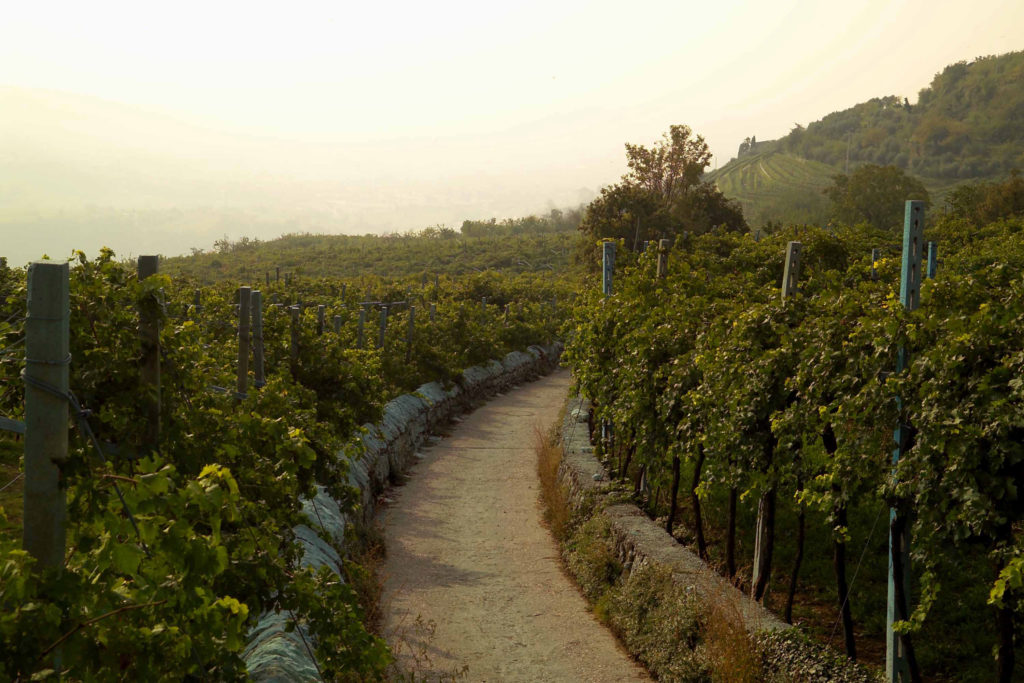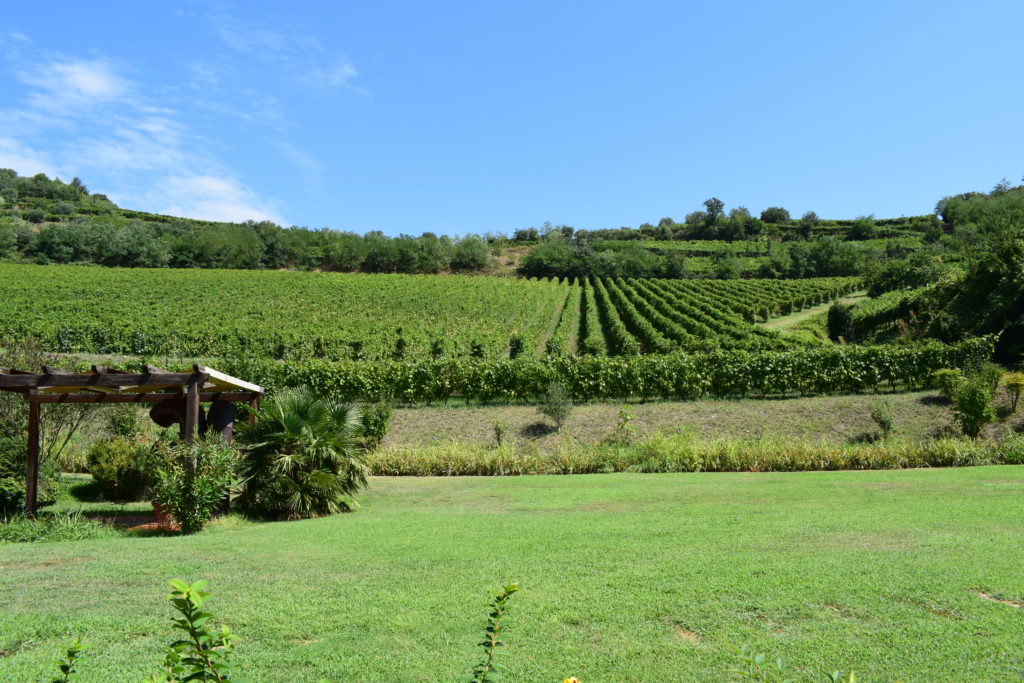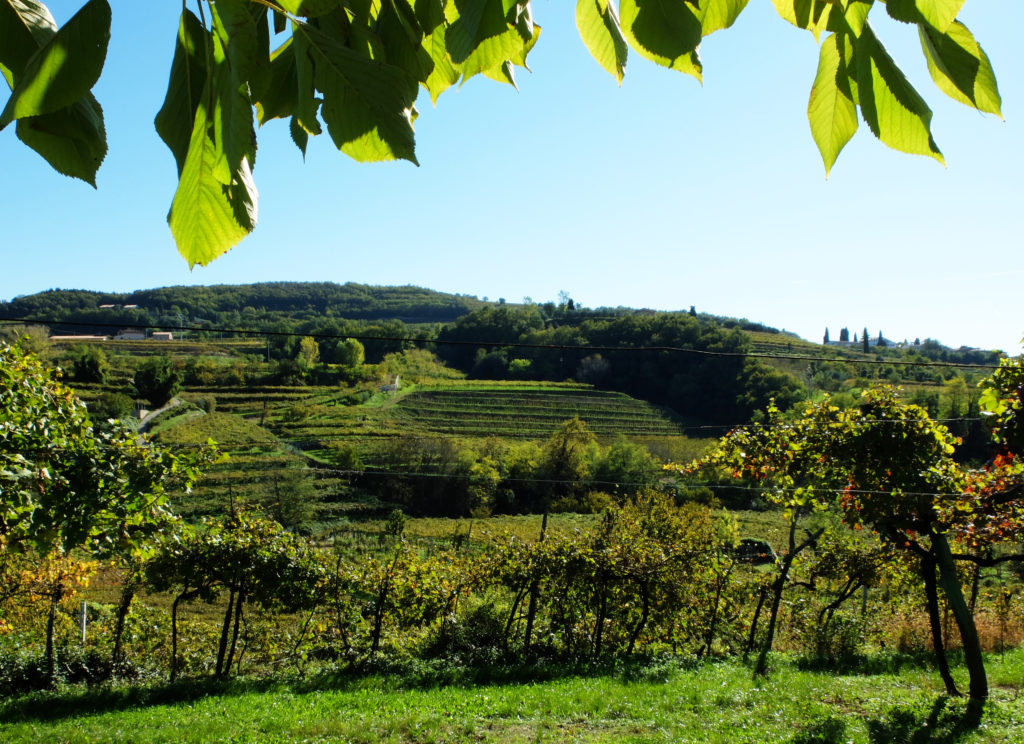Veneto, Land of PIWIs
The current climate crisis has imposed a shift in paradigms related to viticulture. As highlighted by research conducted by Inrae [1], if average temperatures were to rise by 2 degrees Celsius by 2050, 56% of current global wine-growing regions could disappear. If, on the other hand, warming reached 4 degrees by 2100, this percentage would rise to 85% .This warming scenario would especially threaten the Mediterranean area, with Italy and Spain losing 68% and 65% of areas suitable for growing vines, respectively. But rising temperatures are just one of the main problems of agriculture. Regarding viticulture, pesticide use represents one of the most impactful aspects on human health. Despite the fact that inside EU pest control is carried out with strategies that pay increasing attention to the environment, viticulture exploits about 65% of all fungicides used in agriculture for the defense of vines against the main fungal pathogens, since the widespread varieties of Vitis Vinifera are susceptible to a large number of diseases[2].
PIWI: Resistant wines
One of the strategies adopted by the wine industry in response to climate change and to the use of chemistry in viticulture has been the creation of crosses of Vitis varieties that are resistant to pests and fungus. When referring to these varieties, specific reference is made to PIWI, a German acronym for PilzWiderstandsfähige, which literally means fungus-resistant. These vine varieties, which do not identify as GMOs, are considered resistant vines because they resist the main vine pests, namely OIDIO (Erysiphe necator) and PERONOSPORA (Plasmopara viticola), also, they have reduced susceptibility to Botrytis Acid rot and resist cold weather, which is crucial in a landscape that includes extreme weather events at the most varied times of the year.
Veneto as an example of sustainable cultivation
 In the context of resistant cultivation, Veneto is the Italian region where PIWI grape cultivation is most widespread. In recent years, this region has promoted a series of projects leading to the authorization of 20 types of “resistant” grape varieties, generating considerable interest among producers[3]. Furthermore, since 2020, the experimental vineyard activity expanded with further projects in collaboration with the PIWI Veneto Association, a non-profit organization. Among the major producers of “resistant” varieties in Veneto, attention is focused on an experimental vineyard comprising the latest “resistant” black grape varieties that can overlap with Pinot Noir in phenological stages and enological characteristics[4].
In the context of resistant cultivation, Veneto is the Italian region where PIWI grape cultivation is most widespread. In recent years, this region has promoted a series of projects leading to the authorization of 20 types of “resistant” grape varieties, generating considerable interest among producers[3]. Furthermore, since 2020, the experimental vineyard activity expanded with further projects in collaboration with the PIWI Veneto Association, a non-profit organization. Among the major producers of “resistant” varieties in Veneto, attention is focused on an experimental vineyard comprising the latest “resistant” black grape varieties that can overlap with Pinot Noir in phenological stages and enological characteristics[4].
Italian Varieties
The data regarding the adoption of PIWI grape varieties in Italian regions provide insights into which cultivars have been predominantly planted in recent years. This trend is influenced by factors such as the greater availability of certain varieties, such as Freiburg cultivars, compared to newer ones. Furthermore, the choice of cultivars is influenced by their perceived higher quality and the regional authorizations for planting, particularly for black grape varieties. Among white grape varieties, Solaris leads with 60 plantings, followed by Souvignier Gris with 59, Bronner with 50, and Johanniter with 34. Regarding made in Italy varieties, Soreli, Sauvignon Kretos, and Fleurtai are the most commonly planted varieties[5].
Photo Credits: Courtesy from Le Carezze Organic Winery, Albino Armani, Giannitessari
[1] Inrae, De l’œnologie à la viticulture.
[2] Veneto Agricoltura Regione Veneto, Vitigni “Resistenti”, Il Futuro Della Viticoltura Passa Di Qua…
[3] Veneto Agricoltura Regione Veneto, Vitigni “Resistenti”, Avanza Spedita Nel Veneto La Ricerca.
[4] Veneto Agricoltura Regione Veneto, Vitigni “Resistenti”, Il Futuro Della Viticoltura Passa Di Qua…
[5] Vini e Viti Resistenti, Censimento PIWI in Italia.